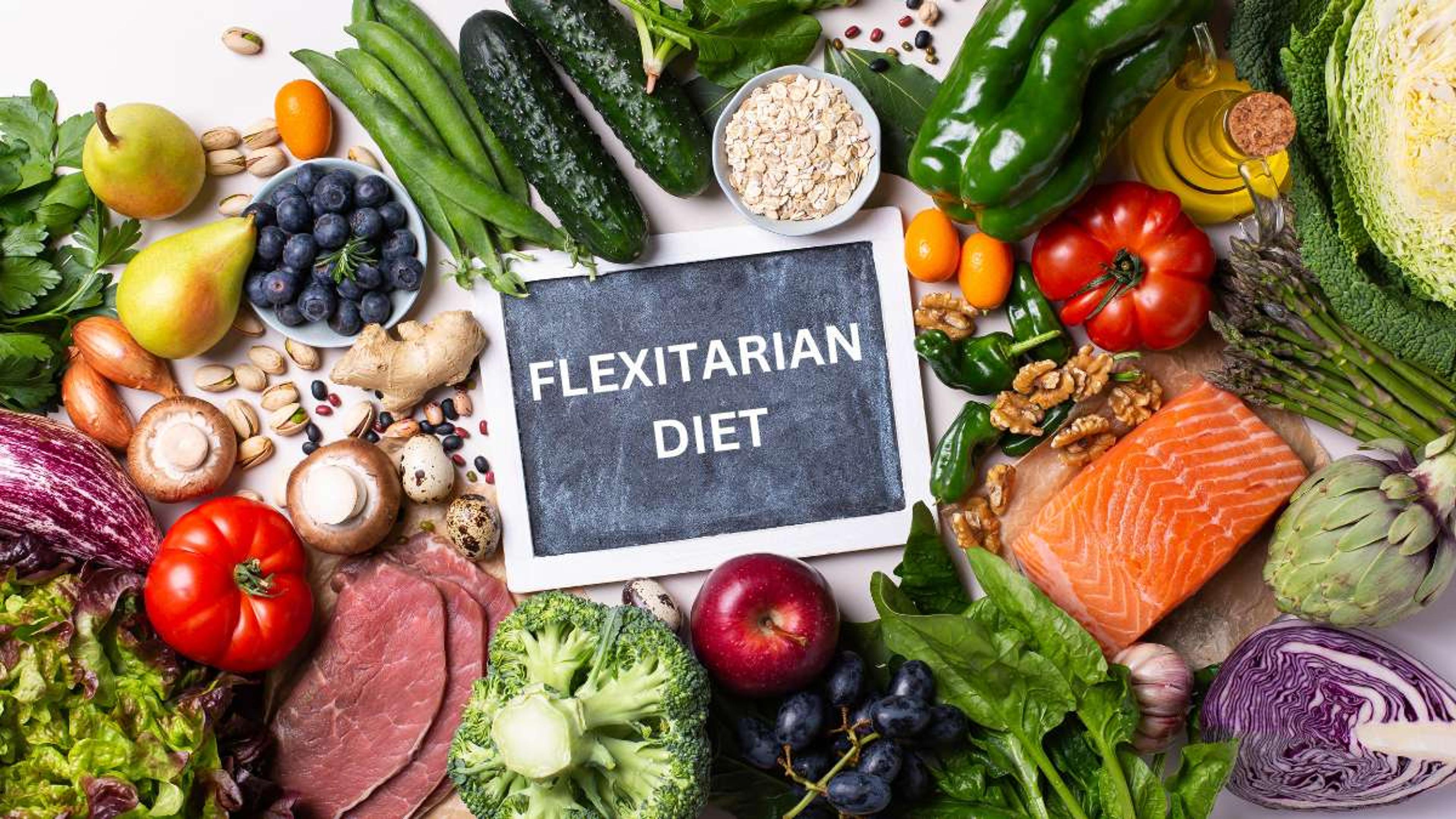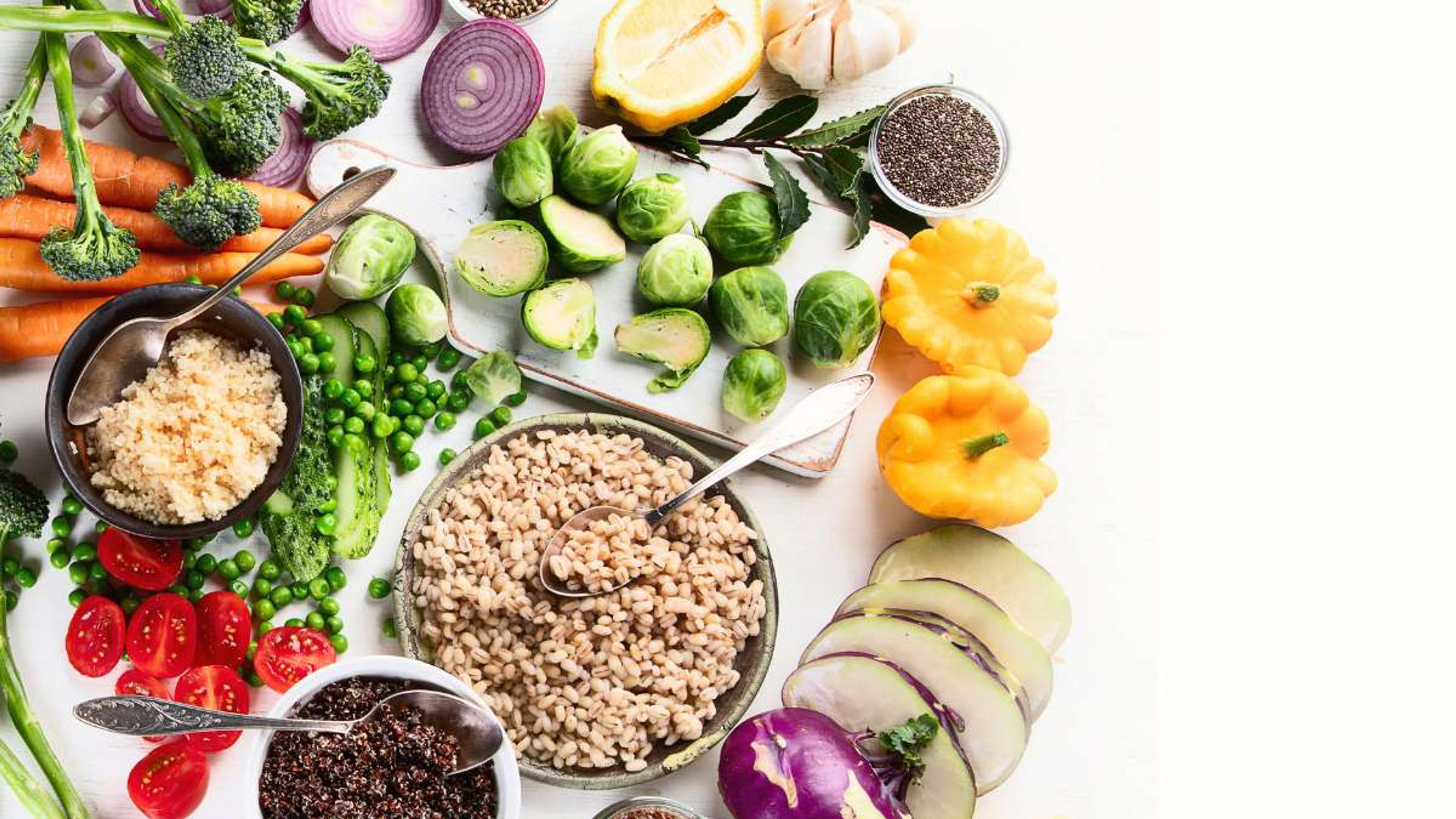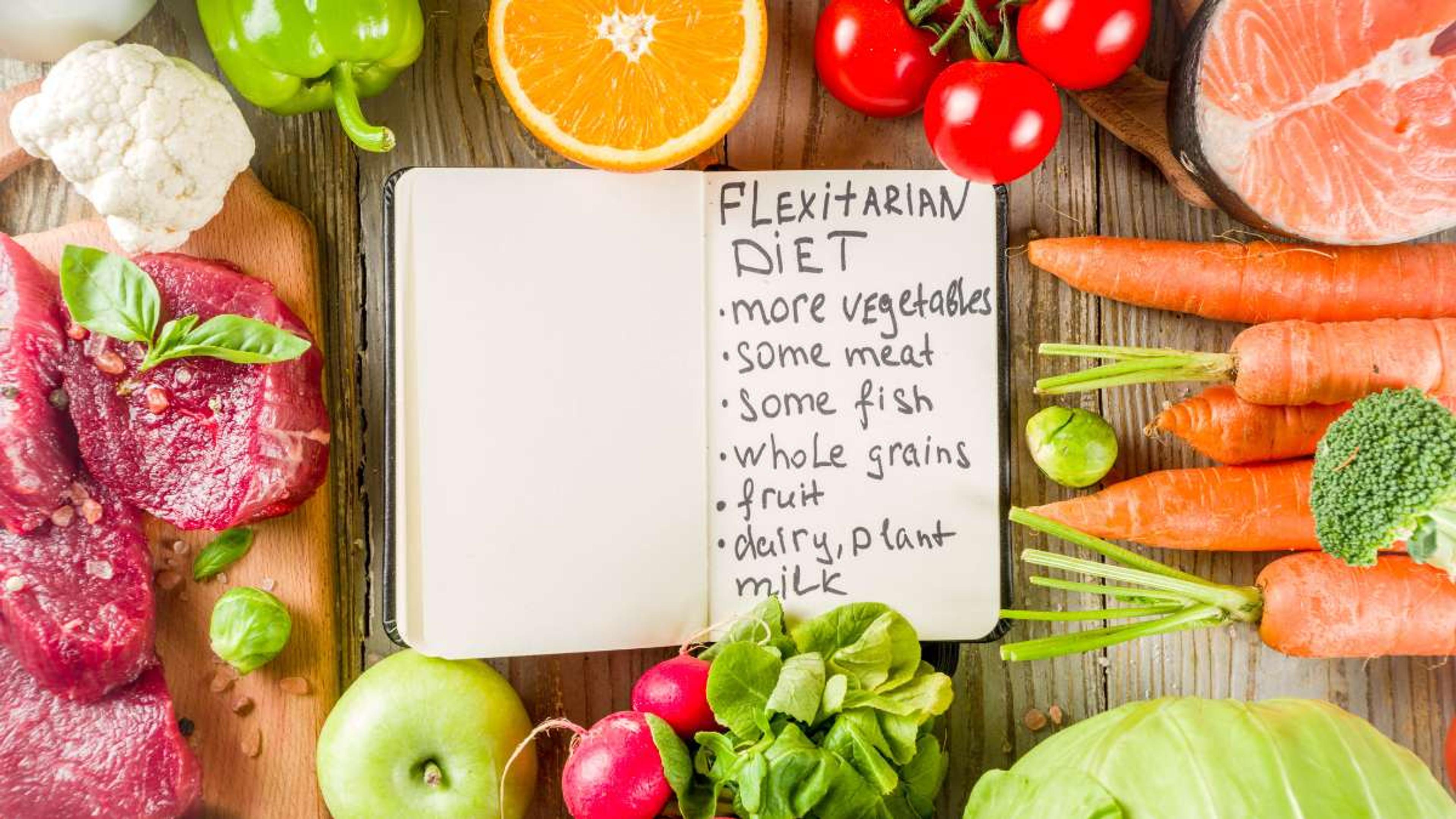Do vegetarians eat meat? Difference, Benefits & More

- Key Takeaways
- Defining Vegetarianism
- Core Principles of Vegetarianism
- What Vegetarians Do and Don't Eat
- The Rise of Flexitarianism
- Health Benefits of a Vegetarian Diet
- Potential Nutritional Concerns for Vegetarians
- Conclusion
- FAQs
Are you curious to know if vegetarians ever eat meat? Well, here's a fact: vegetarians typically avoid consuming any form of meat. In this blog post, we will dive into the core principles of vegetarianism and explore what vegetarians do and don't eat.
If you've ever wondered about the rise of flexitarian diets or the health benefits of a plant-based lifestyle, keep reading! It's time to debunk some common misconceptions about vegetarian diets.
Key Takeaways
- Vegetarians typically avoid consuming any form of meat, fish, or poultry.
- There are different types of vegetarians. Some include dairy products in their diet while others do not.
- Flexitarianism is a dietary trend.where individuals primarily follow a vegetarian lifestyle but occasionally consume meat or seafood.
- A vegetarian diet has been linked to lower risks of chronic diseases such as heart disease, type 2 diabetes, and high cholesterol.
Defining Vegetarianism
Vegetarianism means you don't eat meat, fish, or poultry. It's a lifestyle that focuses on eating plant-based foods like vegetables and grains. There are different types of vegetarians.
Some eat dairy products like milk and cheese while others do not. The reasons for being vegetarian can differ from person to person. A few choose it for health benefits while others may pick it due to love for animals or the planet.
So, the core idea of vegetarianism is saying no to animal foods but what exactly they eat can vary among vegetarians themselves.
Common misconceptions
Many people think wrong things about a vegetarian diet. They believe these diets do not have enough protein or iron. This is not true. Foods like tofu, lentils, and peas are plant-based and full of protein.
Iron can be found in leafy vegetables and whole grains. A vegetarian diet is not always for weight loss or good health as some think. It's also false that all vegetarians eat the same way; in fact, there are different kinds of vegetarian diets to fit different needs and beliefs.
Core Principles of Vegetarianism
Vegetarianism centers around the avoidance of meat, but there are different classifications within this dietary choice. Read on to explore the core principles of vegetarianism and understand its various forms.
Primary Reason behind Avoiding Meat
Many people choose not to eat meat for different reasons. Some do it for health. They want a healthy heart and low cholesterol levels. Others care about animal welfare. They don't like how animals are treated on farms.
There are also those who worry about the planet. Meat farming uses a lot of water, land, and food that could be used in other ways. You would also find vegetarians that have not had any meat since birth. People have many reasons to follow a vegetarian diet or lifestyle.

There are many types of vegetarians. Each type has their own rules about food.
- Lacto-ovo-vegetarians enjoy a wide range of foods. They eat things like dairy and eggs as well as plants.
- People who choose to be lacto-vegetarians do not eat meat or fish. They also stay away from eggs. But, they do eat dairy.
- Lastly, there are ovo-vegetarians. They avoid meat, fish, and dairy in their meals. Eggs, though, are still on their menu.
What Vegetarians Do and Don't Eat
Vegetarians strictly avoid consuming beef, chicken, pork, and seafood. Interested to learn more about the stance on dairy and eggs in various vegetarian diets?.
Foods Strictly Avoided
Vegetarians follow a diet that excludes meat, such as beef, chicken, pork, fish and seafood; or any foods/products that include them.
Vegetarians choose to prioritize their health, animal welfare, and environmental sustainability. By excluding meat from their diet, they aim to reduce the risk of heart disease and maintain low cholesterol levels.
Additionally, they believe in treating animals with compassion and avoiding the ethical concerns associated with factory farming. Moreover, by abstaining from meat consumption, vegetarians contribute to reducing the environmental impact caused by meat production, such as excessive water usage and deforestation.
Stance on Dairy and Eggs
Different vegetarian diets have varying stances on dairy and eggs. Ovo-vegetarians include eggs in their diet but avoid meat, seafood, and dairy products. Lacto-ovo vegetarians consume milk, dairy products, and eggs while excluding meat, fish, and poultry.
Vegans choose to exclude all animal-derived foods such as meat, dairy, eggs, honey, and other animal products. The decision to include or exclude dairy and eggs is a personal choice among individuals following a vegetarian diet.
Difference between vegetarian and vegan diets
Vegetarian and vegan diets have some similarities but also important differences. Both vegetarians and vegans don't eat meat, but the distinction lies in what other animal products they exclude.
Vegetarians may still consume dairy products and eggs, while vegans avoid all animal-derived foods completely, including dairy, eggs, honey, and any other products sourced from animals.
This means that a vegetarian diet is more flexible when it comes to including certain animal-based foods compared to a vegan diet which strictly excludes them.
The Rise of Flexitarianism
Flexitarianism is a growing dietary trend, where individuals primarily follow a vegetarian lifestyle but occasionally consume meat or seafood.

Understanding Flexitarian Diet
A flexitarian diet is a way of eating that focuses on consuming mostly plant-based foods while allowing for occasional consumption of meat or fish. It promotes flexibility and balance in food choices, encouraging individuals to prioritize fruits, vegetables, whole grains, legumes, and other plant-based sources.
The goal is to reduce the intake of animal products while still enjoying them in moderation. Flexitarians choose this approach for various reasons, such as improving their health, reducing environmental impact, or simply exploring new flavors and recipes.
By incorporating more plants into their meals and reducing meat consumption, flexitarians can enjoy the benefits of a predominantly vegetarian lifestyle while still having some flexibility with their diet.
Do Flexitarians Eat Meat?
In a predominantly vegetarian lifestyle, some individuals choose to occasionally consume meat or seafood. This approach is known as flexitarianism or semi-vegetarianism. The idea behind it is to reduce meat intake and focus more on plant-based foods while still allowing for occasional animal product consumption.
Flexitarianism offers a way to enjoy the health benefits of a plant-based diet while being flexible with dietary choices. Research suggests that adopting a flexitarian diet can lead to improved health outcomes, including reduced risk of chronic diseases and promoting sustainability efforts.
Reasons People Choose a Flexitarian Approach
Many people choose a flexitarian approach because it allows them to enjoy the benefits of a plant-based diet while still having the flexibility to occasionally consume meat or fish.
This dietary choice may be driven by various factors, including health concerns, environmental sustainability, and personal preferences. By reducing their meat intake and increasing their consumption of fruits, vegetables, whole grains, and legumes, flexitarians can improve their overall health by lowering the risk of chronic diseases such as heart disease and diabetes.
Additionally, choosing a more plant-focused diet can have positive effects on the environment by reducing greenhouse gas emissions and preserving natural resources. For those who may find it difficult to completely eliminate meat from their diet or want to accommodate social situations that involve meat-based meals, adopting a flexitarian approach provides balance and flexibility in making food choices that align with individual values and goals.
Health Benefits of a Vegetarian Diet
A vegetarian diet has been linked to lower risks of heart disease, type 2 diabetes, and high cholesterol.
Lower Risk of Chronic Diseases
Adopting a vegetarian diet can lower the risk of heart disease, type 2 diabetes, and high cholesterol. This is because plant-based diets tend to be lower in saturated fat and cholesterol, which are known risk factors for these conditions. Studies have shown that individuals who follow a vegetarian diet have a reduced risk of developing heart disease compared to those who consume meat. Additionally, vegetarian diets have been associated with improved blood sugar control and insulin sensitivity, making them beneficial for preventing or managing type 2 diabetes. Furthermore, plant-based diets are often higher in fiber and antioxidants, which can help lower cholesterol levels and improve overall heart health.
Better Weight Management and Overall Health
A plant-based diet can play a significant role in weight management and overall health. Studies have shown that people who follow a plant-based diet tend to have lower body mass indexes (BMIs), suggesting that it can help with weight control.
Experimentally, switching to a plant-based diet has been found to aid in weight loss. Not only that, but plant-based diets are also considered cost-effective and low-risk interventions that can lead to lower blood pressure, HbA1C levels (a marker of blood sugar control), and cholesterol levels.
By reducing the consumption of high-calorie animal products and increasing intake of nutrient-dense fruits, vegetables, whole grains, legumes, and plant proteins, individuals can effectively manage their weight while improving their overall health.
Potential Nutritional Concerns for Vegetarians
Vegetarians may have potential nutritional concerns due to the need for sufficient intake of essential nutrients such as protein, calcium, iron, and vitamin B12 in their diet.
Essential nutrients sources
In a vegetarian diet, it is important to get enough essential nutrients. Here are some key nutrients and where you can find them:
- Protein: Lentils, tofu, tempeh, peas, and soy products are good sources of protein in a vegetarian diet.
- Calcium: Dairy products like milk, cheese, and yogurt are rich in calcium. Leafy green vegetables such as spinach and kale also provide calcium.
- Iron: Legumes like lentils and beans, as well as fortified cereals and whole grains, can help meet iron needs in a vegetarian diet.
- Vitamin B12: This nutrient is mainly found in animal-sourced foods, so vegetarians may need to consider taking supplements or consuming fortified plant-based foods.
Importance of a Balanced Vegetarian Diet
A balanced vegetarian diet is crucial to prevent deficiencies and ensure that your body gets all the necessary nutrients. By including a variety of plant-based foods, such as fruits, vegetables, whole grains, legumes, nuts, and seeds, you can meet your nutritional needs without consuming animal products.
It's important to pay attention to key nutrients like protein, calcium, iron, and vitamin B12 in a vegetarian diet.
Protein can be obtained from sources like beans, lentils, tofu, tempeh, and soy products. Calcium can be found in dairy alternatives like fortified plant milk or yogurt. Iron can be obtained from leafy green vegetables like spinach and kale or legumes like lentils and chickpeas.
Lastly,vitamin B12 sources might include fortified cereals or supplements.
Conclusion
In conclusion, vegetarianism is a dietary choice that involves abstaining from meat, fish, and poultry. While there are different types of vegetarians with varying restrictions on dairy and eggs, the core principle remains the same - a commitment to plant-based eating for various reasons including health, environmental concerns, ethics, religion, and economics.
It's important to understand and respect individual dietary choices while recognizing the potential health benefits associated with vegetarian diets.
Addressing the primary question: Do vegetarians eat meat?
Vegetarians do not eat meat, including poultry, fish, and seafood. They also avoid products derived from animals, such as eggs and dairy. Vegetarianism is about excluding animal-based foods from the diet for various reasons, such as ethical beliefs or health considerations.
While there are different types of vegetarians with some variations in what they consume, meat is generally off-limits for all vegetarians.
Respect for individual dietary choices
It's important to promote understanding and respect for individual dietary choices. Everyone has their own reasons for choosing a vegetarian or vegan lifestyle, whether it's for health, environmental, ethical, religious, or economic reasons.
By recognizing and accepting these choices, we can create a more inclusive and supportive environment for vegetarians and vegans. Research shows that vegetarian diets can be healthy and nutritionally adequate while also benefiting the environment and animals.
So let's embrace diversity in food choices and celebrate the different perspectives that contribute to a more compassionate world.
FAQs
1. Do vegetarians eat meat?
No, vegetarians do not eat meat, including animal protein from sources like shellfish.
2. Can the diet of a vegetarian lack some nutrients?
Yes, sometimes vegetarians might have less zinc, omega-3 fatty acids and vitamin D which are mostly found in meats. Yet they can eat breakfast cereals and dairy foods to meet these needs.
3. What other foods do vegetarians eat instead of meat?
Vegetarians replace meat with plant foods to give them amino acids for digestion. They also enjoy low-fat vegetable protein from a mix of snacks and meals for a healthy diet.
4. Can vegetarian diets affect health problems?
A well-planned vegetarian diet can help lower LDL or "bad" fats that lead to obesity.
5. Is breastfeeding safe for mothers on a plant-based diet?
Mothers who follow veganism or any form of vegetarian society rules should ask an RD (Registered Dietitian). But many expert groups such as Academy Of Nutrition And Dietetics say it is fine if done right.

